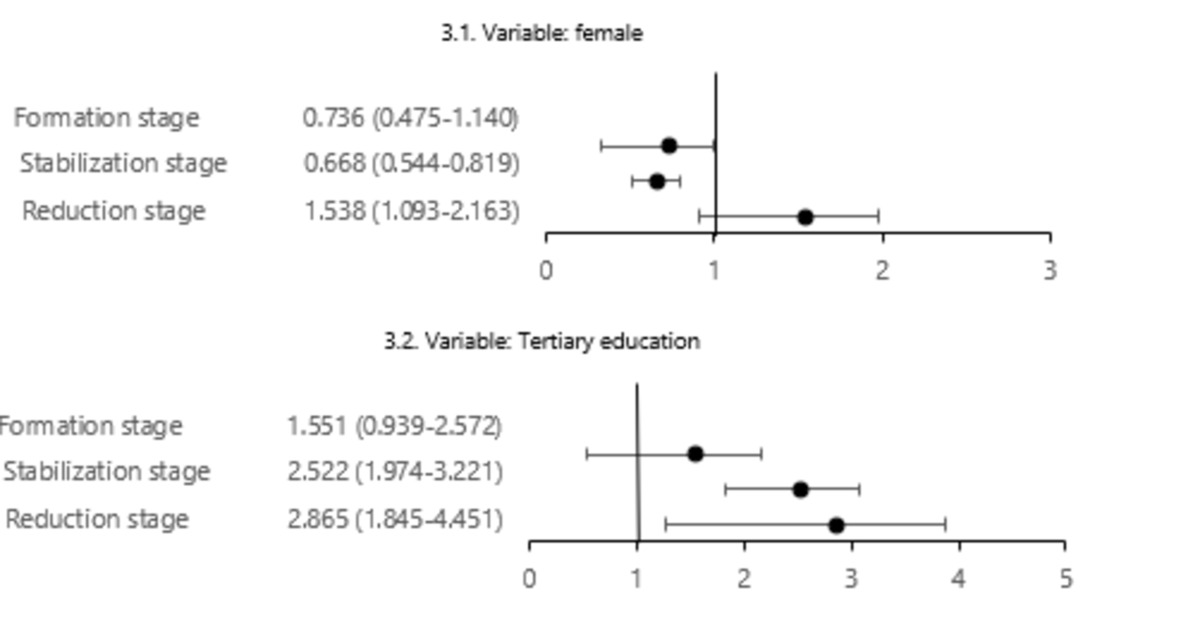Current issue
Online first
Archive
About the Journal
Aims and scope
Editorial Board
International Editorial Board
List of Reviewers
Abstracting and indexing
Ethical standards and procedures
REMV in Social Media
Contact
Instructions for Authors
Instructions for Authors
Manuscript formatting template
Title page
Highlights
Payments
‘Ghostwriting’ and ‘Guestauthorship’
Guidelines for Referees
Inequalities in trasition to homeownership in household life cycle
1
Department of Economic and Social Development, University of Bialystok, Poland
Submission date: 2023-07-25
Final revision date: 2024-02-13
Acceptance date: 2024-04-15
Publication date: 2024-06-10
Corresponding author
REMV; 2024;32(2):80-89
HIGHLIGHTS
- the inequalities in trasition to HO changes in household life cycle
- at the formation stage income and the size of the city are important
- at the stabilization stage gender, education, health and marital status play a key role
KEYWORDS
TOPICS
ABSTRACT
The housing situation changes with the household formation cycle. Age, marital status and having children are key to explaining the tenure status of households. However, the question of what factors differentiate owners and tenants if they are at the same stage of household formation arises. Using the logit model method, the determinants of tenure status of Polish households in the same life cycle stages were compared. The study used EU-SILC data for 2018. It showed that both the determinants of housing choices and the strength of their impact differ. At the household formation stage, income and the size of the city are important determinants. At this stage, housing choice is limited due to the availability of the rental market and the need for young people, who migrate to larger cities, to become independent. At the stabilization stage, the source of inequality was the gender of the household head, education, health and marital status. It has been observed that entering into an informal relationship by divorced persons does not equalize their chances of homeownership.
FUNDING
This research was funded by Polish National Science Centre (NCN) Grant
(2018/31/N/HS4/02333).
Share
RELATED ARTICLE
We process personal data collected when visiting the website. The function of obtaining information about users and their behavior is carried out by voluntarily entered information in forms and saving cookies in end devices. Data, including cookies, are used to provide services, improve the user experience and to analyze the traffic in accordance with the Privacy policy. Data are also collected and processed by Google Analytics tool (more).
You can change cookies settings in your browser. Restricted use of cookies in the browser configuration may affect some functionalities of the website.
You can change cookies settings in your browser. Restricted use of cookies in the browser configuration may affect some functionalities of the website.




